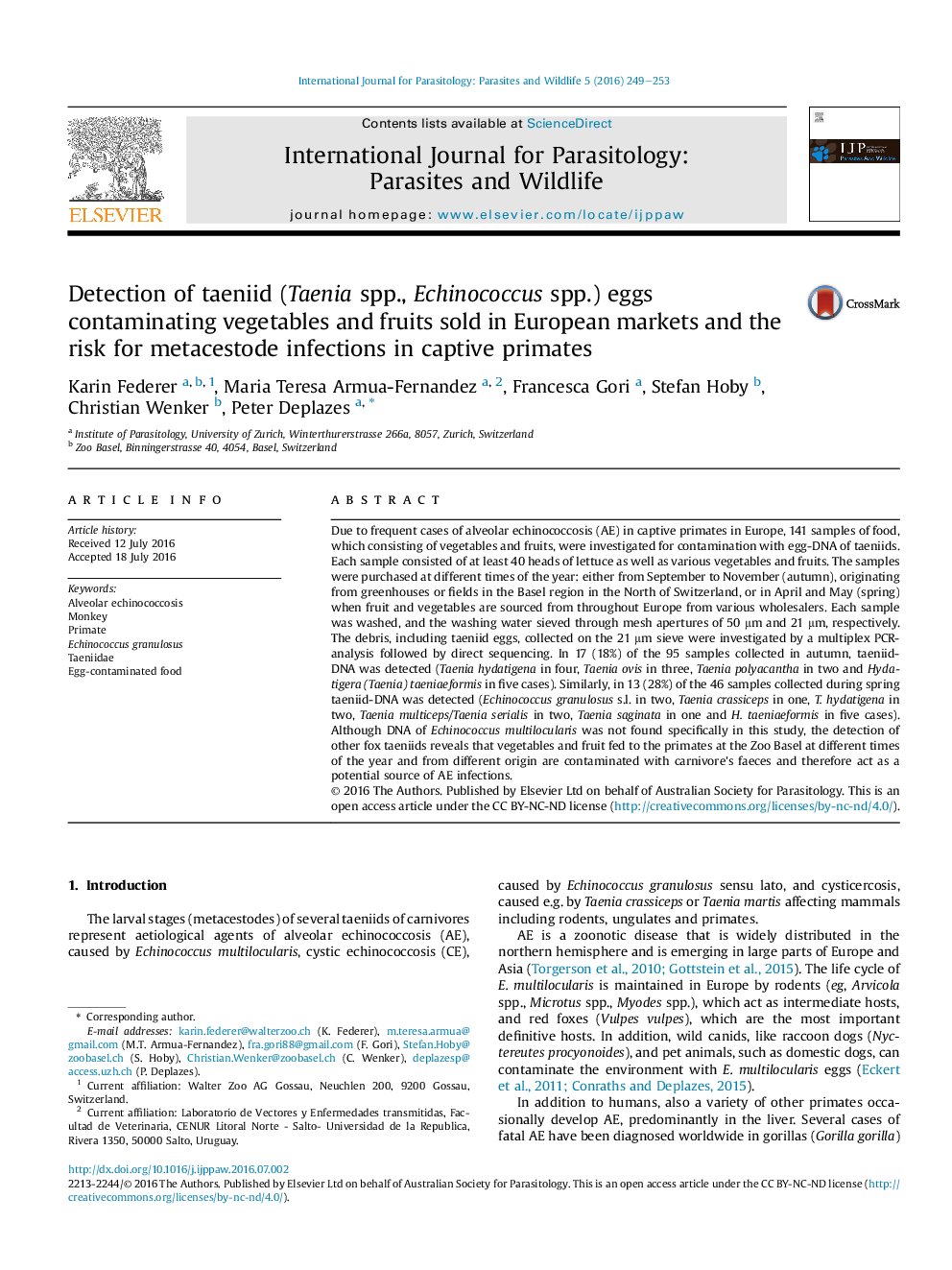| کد مقاله | کد نشریه | سال انتشار | مقاله انگلیسی | نسخه تمام متن |
|---|---|---|---|---|
| 2055158 | 1401039 | 2016 | 5 صفحه PDF | دانلود رایگان |
• Molecular analysis revealed the presence of DNA of cestode origin in vegetables.
• Vegetables/fruits contained taeniid eggs excreted by human, cats, dogs or foxes.
• Contaminated vegetables represent a potential risk of zoonotic cestodes.
Due to frequent cases of alveolar echinococcosis (AE) in captive primates in Europe, 141 samples of food, which consisting of vegetables and fruits, were investigated for contamination with egg-DNA of taeniids. Each sample consisted of at least 40 heads of lettuce as well as various vegetables and fruits. The samples were purchased at different times of the year: either from September to November (autumn), originating from greenhouses or fields in the Basel region in the North of Switzerland, or in April and May (spring) when fruit and vegetables are sourced from throughout Europe from various wholesalers. Each sample was washed, and the washing water sieved through mesh apertures of 50 μm and 21 μm, respectively. The debris, including taeniid eggs, collected on the 21 μm sieve were investigated by a multiplex PCR-analysis followed by direct sequencing. In 17 (18%) of the 95 samples collected in autumn, taeniid-DNA was detected (Taenia hydatigena in four, Taenia ovis in three, Taenia polyacantha in two and Hydatigera (Taenia) taeniaeformis in five cases). Similarly, in 13 (28%) of the 46 samples collected during spring taeniid-DNA was detected (Echinococcus granulosus s.l. in two, Taenia crassiceps in one, T. hydatigena in two, Taenia multiceps/Taenia serialis in two, Taenia saginata in one and H. taeniaeformis in five cases). Although DNA of Echinococcus multilocularis was not found specifically in this study, the detection of other fox taeniids reveals that vegetables and fruit fed to the primates at the Zoo Basel at different times of the year and from different origin are contaminated with carnivore's faeces and therefore act as a potential source of AE infections.
Figure optionsDownload as PowerPoint slide
Journal: International Journal for Parasitology: Parasites and Wildlife - Volume 5, Issue 3, December 2016, Pages 249–253
